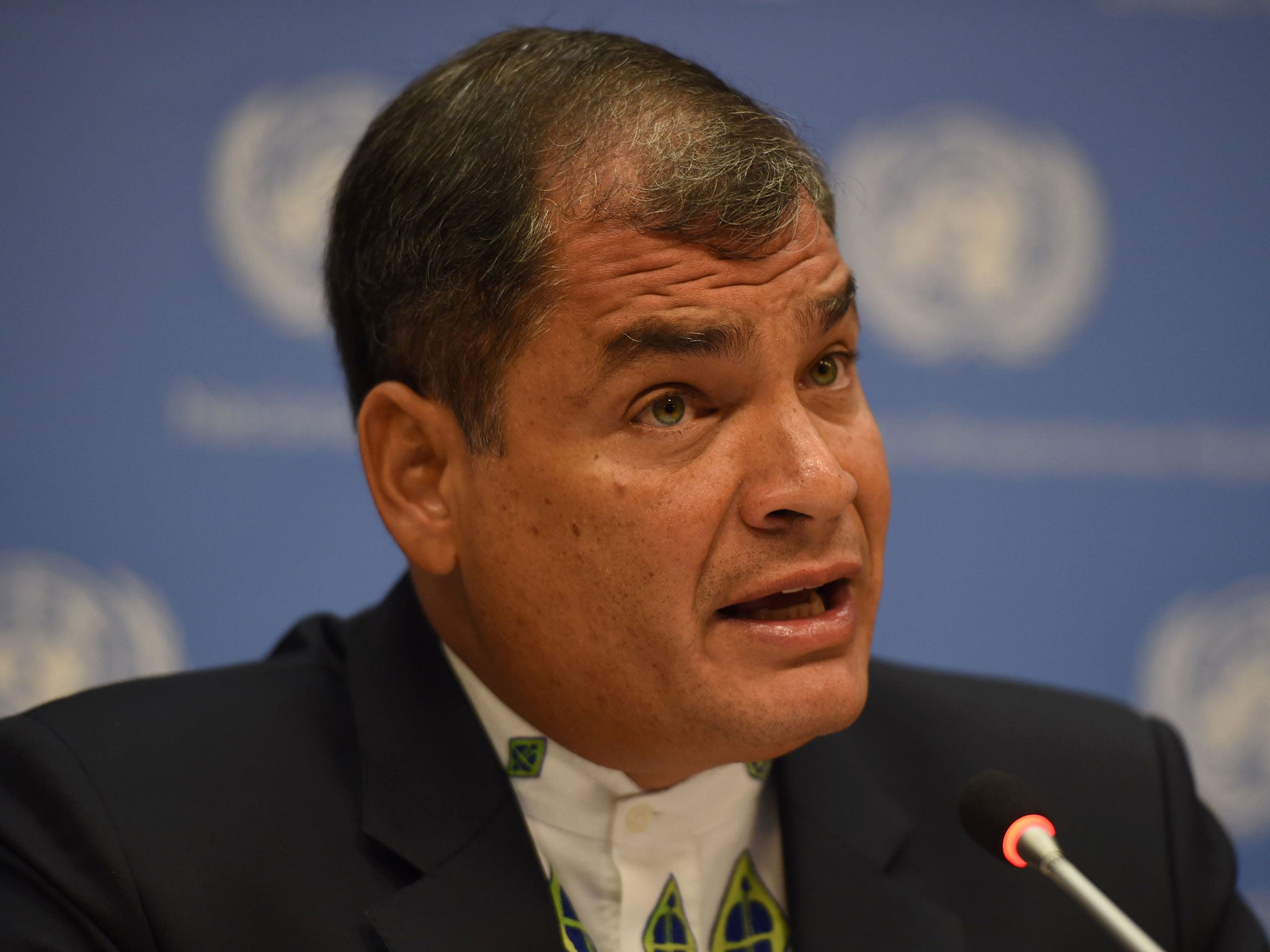Ecuador earthquake: Government to tax millionaires to pay for reconstruction
President Rafael Correa: 'I know we're at the most difficult stage right now, but it's just the beginning'

The President of Ecuador has announced that one-off taxes on millionaires and the privatisation of some state assets will be required to reconstruct the country in the wake of the earthquake that has killed nearly 600 people.
President Rafael Correa, who leads the Pais Alliance socialist movement, detailed the measures yesterday, saying that the economic pain of a multi-billion dollar reconstruction should not fall only on hard-hit communities along the coast.
A 7.8-magnitude earthquake struck Ecuador on Saturday evening, with another 6.1-magnitude quake following last night.
Mr Correa said rebuilding the country after its worst earthquake in decades would be a long and costly recovery process.
“I know we’re at the most difficult stage right now but it’s just the beginning,” he said in a televised address.
Using authority granted by the state of emergency he declared after the natural disaster, Mr Correa said value added tax would rise from 12 to 14 per cent for the coming year.
People with more than $1million in assets would have to pay a one-time tax consisting of 0.9 per cent of their wealth, he added.
Workers earning more than $1,000 a month would need to contribute a day’s wages and those earning $5,000 a month the equivalent of five days’ pay.
Mr Correa, an economist, said he was “looking at the possibility of issuing bonds on the international market” to raise more funds and said he aimed to sell some of the country’s assets – although he did not specify which ones.
“The country has many assets thanks to investment over all these years and we will seek to sell some of them to overcome these difficult moments,” he said.
He said the government would also use $600million of emergency credit from the World Bank and other lenders as part of its rebuilding efforts.
Ecuador was bracing for austerity for some time before the earthquake struck, with the International Monetary Fund forecasting the country’s economy would shrink by 4.5 per cent this year.
With oil as its main export – aside from bananas, shrimp, coffee, cocoa, cut flowers and fish – economic hardship was already being felt in the South American nation due to the collapse in world oil prices.
The Ecuadorian government has said the earthquake has so far claimed the lives of 570 people, with 163 still missing and nearly 24,000 homeless as a result.
It is understood that while humanitarian aid has been coming into the country, its distribution has been slow.
Additional reporting by Reuters and AP
Join our commenting forum
Join thought-provoking conversations, follow other Independent readers and see their replies
Comments
Bookmark popover
Removed from bookmarks